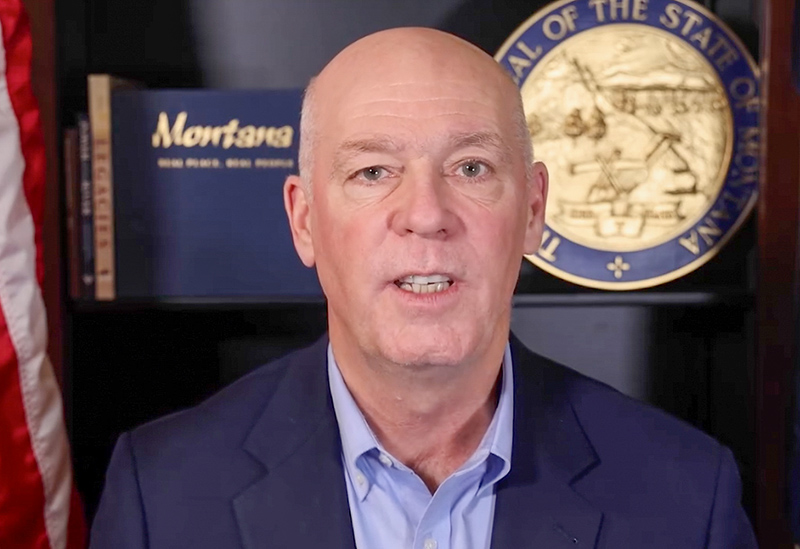Appeals court upholds Florida trans student’s right to use boys’ restroom
11th Circuit Judge Beverly Martin hopes to deter her conservative colleagues from overturning her decision in favor of Drew Adams.

A federal appeals court has issued a revised opinion reaffirming a decision from last year that found that transgender high school students should be allowed to access facilities that match their gender identity.
On Wednesday, the Atlanta-based 11th U.S Circuit Court of Appeals found that the St. Johns County School Board had discriminated against Drew Adams, a 20-year-old transgender man and former student, when school officials, taking their cues from the board, barred Adams from using the boys’ restroom at Allen D. Nease High School in Ponte Vedra, Florida, despite having previously allowed him to use restrooms matching his gender identity.
In last year’s decision, the court split 2-1, with Circuit Judges Beverly Martin and Jill Pryor — both Obama appointees — voting to uphold a lower court’s decision finding in favor of Adams. In the circuit court’s decision, Martin and Pryor found that the district’s policy violated Adams’ rights under Title IX, the federal civil rights law prohibiting sex-based discrimination in educational institutions, as well as his right to equal protection under law as guaranteed by the Fourteenth Amendment to the U.S. Constitution.
In the opinion issued Wednesday, Martin and Pryor eliminated their finding that the school board’s policy violated Title IX, instead issuing a narrower opinion that the restroom policy violated Adams’ right to equal protection. Martin noted in her opinion that the new decision is “an effort to get broader support among our colleagues,” or, in other words, an attempt to prevent all the judges on the 11th Circuit — which skews heavily conservative — from rehearing the case en banc and overriding her decision, reports the Atlanta Journal-Constitution.
The circuit court’s decision whether or not to have the full circuit rehear the case will be closely watched by political observers, as a ruling against Adams would create a split in the circuits and likely force the conservative-leaning U.S. Supreme Court to determine whether transgender students have a the right to access facilities matching their gender identity, or whether schools can impose policies that segregate facilities based on a student’s assigned sex at birth.
The high court recently declined to hear an appeal of a similar case out of the 4th Circuit Court of Appeals. In that case, the circuit court found that the Gloucester County School Board in Gloucester, Virginia, discriminated against Gavin Grimm, a former transgender student, when it barred him from the boys’ restroom and required him to use makeshift single-stall restrooms that had once served as broom closets.
A similar decision was issued by the 7th Circuit Court of Appeals in 2017 after a third transgender student, Ash Whitaker, sued his local school district in Kenosha, Wisconsin, for barring him from facilities designated for male students. After the circuit court found in favor of Whitaker, the school district agreed to settle the case out of court.
In her decision, Martin, once again joined by Jill Pryor, wrote that the St. Johns County school district relies on information in a student’s enrollment documents when deciding which bathroom they use. When Adams filed his enrollment papers, he had not yet transitioned and was identified as female, meaning under the policy, he was not supposed to be allowed to use the boys’ restroom, even though he did for the bulk of his freshman year.
See also: Federal judge blocks Tennessee’s “Business Bathroom Bill” requiring anti-transgender restroom signs
However, Martin noted that the district’s exact same policy allows a student who has transitioned prior to enrolling in school to use the restroom aligning with their gender identity. As such, the policy discriminates against some transgender students but not others, and creates inequality, even among members of the transgender community.
“In this way, the policy is arbitrary and fails to advance even the school district’s purported interest,” she wrote. She also criticized the policy as “irrational” because the school district relies only on original enrollment paperwork, which may be outdated, but categorically rejects other government records, such as a driver’s license or an amended birth certificate with an updated gender marker that might more accurately reflect a student’s gender identity.
Chief Judge Bill Pryor, a George W. Bush appointee, dissented from Wednesday’s decision, as he did in the decision issued last August, once again arguing that there is nothing unlawful about having sex-segregated facilities in schools. He accused the court’s majority of closing its eyes to “biological reality,” arguing that “[b]ecause a student’s sex does not change over time, the schools have no need to accept updates.”
The school district’s policy “substantially advances its objective to protect children from exposing their unclothed bodies to the opposite sex,” Pryor wrote in his dissent. “And separating bathrooms by sex eliminates one of the most common opportunities for exposure to the opposite sex.”

However, Martin had previously countered Pryor’s arguments in her own opinion, writing: “Despite the dissent’s imagined parade of horribles, this opinion does not resolve any other issue of student privacy. First, we reiterate that this policy does not do more than rule on whether Mr. Adams has shown that the policy was arbitrary as applied to him.
“Second, we reject the dissent’s characterization of our opinion as not acknowledging students’ interest in ‘avoiding the exposure of their bodies to members of the opposite sex.’ To the contrary, we recognize student privacy interests as ‘[u]ndoubtedly…important,'” Martin added. “However, the point here is that the School District has never shown how its policy furthers that interest, as this record nowhere indicates that there has ever been any kind of ‘exposure’ in the bathrooms at Nease High School, which all contain separate stalls with doors that close and lock.
“Next, despite the dissent’s apparent obsession with locker rooms, this case is not a locker room case. Mr. Adams did not bring a claim for access to the boys’ locker rooms at Nease High School and has never asserted he is entitled to such access. This record shows that Mr. Adams did not register for physical education classes; Nease High School locker rooms are only available to students taking physical education classes; and, even so, ‘no student at Nease High School is required to shower after physical education classes,'” Martin wrote. “We offer no opinion on any claims relating to locker rooms, which, contrary to the dissent’s stark warnings, would entail a separate analysis of the means-ends fit in light of the particular interests at stake. The dissent simply manufactures a problem where none exists.”
Paul Castillo, an attorney for Lambda Legal who represented Adams in the case, told the Journal-Constitution that the former student’s legal team hopes that the narrower decision issued by the 11th Circuit, and the Supreme Court’s reticence to take on the transgender bathroom issue, as evidenced by their refusal to hear the appeal of the 4th Circuit’s decision in the Grimm case, will allow — at least for the time being — other transgender students in Georgia, Alabama and Florida who are under the jurisdiction of the 11th Circuit to use facilities matching their gender identity.
“[W]e hope that this will help bring this dispute to rest so that Andrew can have the final vindication he deserves and get on with his life,” Castillo said.
See also:
New Jersey GOP governor hopeful Jack Ciattarelli rails against “teaching sodomy in sixth grade”
Alexandria gay couple claims neighbor shouted anti-gay, anti-Asian slurs at them
Wyoming biker bar sold T-shirts calling shooting gay people the “cure for AIDS”
Support Metro Weekly’s Journalism
These are challenging times for news organizations. And yet it’s crucial we stay active and provide vital resources and information to both our local readers and the world. So won’t you please take a moment and consider supporting Metro Weekly with a membership? For as little as $5 a month, you can help ensure Metro Weekly magazine and MetroWeekly.com remain free, viable resources as we provide the best, most diverse, culturally-resonant LGBTQ coverage in both the D.C. region and around the world. Memberships come with exclusive perks and discounts, your own personal digital delivery of each week’s magazine (and an archive), access to our Member's Lounge when it launches this fall, and exclusive members-only items like Metro Weekly Membership Mugs and Tote Bags! Check out all our membership levels here and please join us today!


























You must be logged in to post a comment.